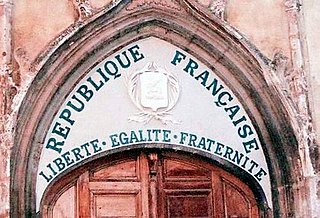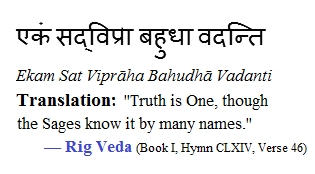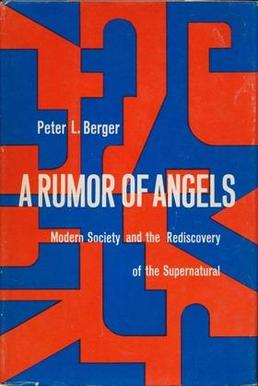Postsecularism refers to a range of theories regarding the persistence or resurgence of religious beliefs or practices in the present. The "post-" may refer to after the end of secularism or after the beginning of secularism.
The term "postsecular" has been used in sociology, political theory, [1] [2] religious studies, art studies, [3] literary studies, [4] [5] education [6] and other fields. Jürgen Habermas is widely credited for popularizing the term, [7] [8] to refer to current times in which the idea of modernity is perceived as failing and, at times, morally unsuccessful, so that, rather than a stratification or separation, a new peaceful dialogue and tolerant coexistence between the spheres of faith and reason [9] must be sought in order to learn mutually. [10] In this sense, Habermas insists that both religious people and secularist people should not exclude each other, but to learn from one another and coexist tolerantly. [11] [12] Massimo Rosati says that in a post secular society, religious and secular perspectives are on even ground, meaning that the two theoretically share equal importance. Modern societies that have considered themselves fully secular until recently have to change their value systems accordingly as to properly accommodate this co-existence. [13]
Charles Taylor's A Secular Age is also frequently invoked as describing the postsecular, [14] though there is sometimes disagreement over what each author meant with the term. Particularly contested is the question of whether "postsecular" refers to a new sociological phenomenon or to a new awareness of an existing phenomenon—that is, whether society was secular and now is becoming post-secular or whether society was never and is not now becoming secular even though many people had thought it was or thought it was going to be. [15] [16] Some suggest that the term is so conflicted as to be of little use. [17] Others suggest that the flexibility of the term is one of its strengths. [18]
In literary studies, the term has been used to indicate a sort of postmodern religious or spiritual sensibility in certain contemporary texts. [19]
The term "desecularization" appears in the title of Peter L. Berger's seminal 1999 work The Desecularization of the World: Resurgent Religion and World Politics.
Berger explains that the assumption that the modern world is secular has been “falsified." [20] Specifically, Berger maintained that "the assumption we live in a secularized world is false.... The world today is as furiously religious as it ever was." [21]
However, for Titus Hjelm, professor of religious studies at the University of Helsinki: "Berger's concept of "desecularization" cannot be taken as a serious "countertheory" to secularization as long as it does not respond to the original theoretical formulations made in [Berger's 1967 book] The Sacred Canopy."[ clarification needed ] [22]

Jürgen Habermas is a German philosopher and social theorist in the tradition of critical theory and pragmatism. His work addresses communicative rationality and the public sphere.
Secularism is the principle of seeking to conduct human affairs based on naturalistic considerations, uninvolved with religion.

Sociology of religion is the study of the beliefs, practices and organizational forms of religion using the tools and methods of the discipline of sociology. This objective investigation may include the use both of quantitative methods and of qualitative approaches.
Irreligion is the absence or rejection of religious beliefs or practices. It encompasses a wide range of viewpoints drawn from various philosophical and intellectual perspectives, including atheism, agnosticism, skepticism, rationalism, and secularism. These perspectives can vary, with individuals who identify as irreligious holding a diverse array of specific beliefs about religion or its role in their lives.

In sociology, secularization is a multilayered concept that generally denotes "a transition from a religious to a more worldly level." There are many types of secularization and most do not lead to atheism, irreligion, nor are they automatically anti-thetical to religion. Secularization has different connotations such as implying differentiation of secular from religious domains, the marginalization of religion in those domains, or it may also entail the transformation of religion as a result of its recharacterization.
Secularity, also the secular or secularness, is the state of being unrelated or neutral in regards to religion. Origins of secularity can be traced to the Bible itself and fleshed out through Christian history into the modern era. In the medieval period there were even secular clergy. Furthermore, secular and religious entities were not separated in the medieval period, but coexisted and interacted naturally. The word "secular" has a meaning very similar to profane as used in a religious context.

Peter Ludwig Berger was an Austrian-born American sociologist and Protestant theologian. Berger became known for his work in the sociology of knowledge, the sociology of religion, study of modernization, and theoretical contributions to sociological theory.

Laïcité is the constitutional principle of secularism in France. Article 1 of the French Constitution is commonly interpreted as the separation of civil society and religious society. It discourages religious involvement in government affairs, especially in the determination of state policies as well as the recognition of a state religion. It also forbids government involvement in religious affairs, and especially prohibits government influence in the determination of religion, such that it includes a right to the free exercise of religion.
In social science, disenchantment is the cultural rationalization and devaluation of religion apparent in modern society. The term was borrowed from Friedrich Schiller by Max Weber to describe the character of a modernized, bureaucratic, secularized Western society. In Western society, according to Weber, scientific understanding is more highly valued than belief, and processes are oriented toward rational goals, as opposed to traditional society, in which "the world remains a great enchanted garden".
Robert John Wuthnow is an American sociologist who is widely known for his work in the sociology of religion. He is the Gerhard R. Andlinger Professor of Sociology Emeritus at Princeton University, where he is also the former chair of the Department of Sociology and director of the Princeton University Center for the Study of Religion.
Secular theology is a term applied to theological positions influenced by humanism and secularism, rejecting supernatural metaphysical positions related to the nature of God. Secular theology can accommodate a belief in God, like many nature religions, but as residing in this world and not separately from it.
Hiloni, plural hilonim, is a social category in Israel, designating the least religious segment among the Jewish public. The other three subgroups on the scale of Jewish-Israeli religiosity are the masortim, "traditional"; datiim, "religious"; and haredim, "ultra-religious" ("ultra-Orthodox"). In the 2018 Israel Central Bureau of Statistics' survey, 43.2% of Jews identified as hiloni.
Postchristianity is the situation in which Christianity is no longer the dominant civil religion of a society but has gradually assumed values, culture, and worldviews that are not necessarily Christian. Post-Christian tends to refer to the loss of Christianity's monopoly in historically Christian societies to atheism or secularism. It does not include formerly Christian-majority societies such as present-day region of Turkey and the Balkans that now follow other religions such as Islam.

A Secular Age is a book written by the philosopher Charles Taylor which was published in 2007 by Harvard University Press on the basis of Taylor's earlier Gifford Lectures. The noted sociologist Robert Bellah has referred to A Secular Age as "one of the most important books to be written in my lifetime."
James Davison Hunter is an American sociologist and originator of the term "culture war" in his 1991 book Culture Wars: The Struggle to Define America. Hunter is the LaBrosse-Levinson Distinguished Professor of Religion, Culture, and Social Theory at the University of Virginia and the founder and executive director of the university's Institute for Advanced Studies in Culture. He is also a senior fellow at the Trinity Forum.

Douglas ("Jake") Jacobsen is a scholar in the field of religious studies whose work encompasses history, theology, and sociology. His early works are analyses of Pentecostalism and American Protestantism. He won the Pneuma Book Award from the Society for Pentecostal Studies in 2004. His current work focuses on world Christianity, including the books The World's Christians: Who They Are, Where They Are, and How They Got There and Global Gospel: An Introduction to Christianity on Five Continents.
Philip Joseph Zuckerman is a sociologist and professor of sociology and secular studies at Pitzer College in Claremont, California. He specializes in the sociology of substantial secularity and is the author of eight books, including Beyond Doubt: The Secularization of Society (2023) What It Means to Be Moral: Why Religion Is Not Necessary for Living an Ethical Life (2019).

Principled Distance is a new model of secularism given by Rajeev Bhargava. The separation of government institutions and persons mandated to represent the state from religious institutions and religious dignitaries. He says that Indian secularism did not erect a strict wall of separation, but proposed a 'principled distance' between religion and state. Moreover, by balancing the claims of individuals and religious communities, it never intended a bludgeoning privatization of religion. In India, secularism means equal treatment of all religions. Religion in India continues to assert its political authority in matters of personal law. The western model of secularism is criticized in India for being an outdated concept as Rajeev argued that since Western model was developed when society was more homogeneous but since in the era of globalization, society is becoming more heterogeneous therefore a new concept, suitable for the present situation, is needed. He even argued that since Europe itself is no more homogeneous hence West should also follow the principled distance model which on one hand respects the diversity and at the same time empowers the state to interfere in case of any discrimination in the name of religion.

A Rumor of Angels: Modern Society and the Rediscovery of the Supernatural is a 1969 book about sociology by the sociologist Peter L. Berger. The book is one of Berger's most important works on the topic of the sociology of religion. A Rumor of Angels had a profound influence within the American religious establishment as well; his work is frequently cited in church sources.

In sociology, desecularization is a resurgence or growth of religion after a period of secularization. The theory of desecularization is a reaction to the theory known as the secularization thesis, which posits a gradual decline in the importance of religion and of religious belief itself, as a universal feature of modern society. The term desecularization was coined by Peter L. Berger, a former proponent of the secularization thesis, in his 1999 book The Desecularization of the World.